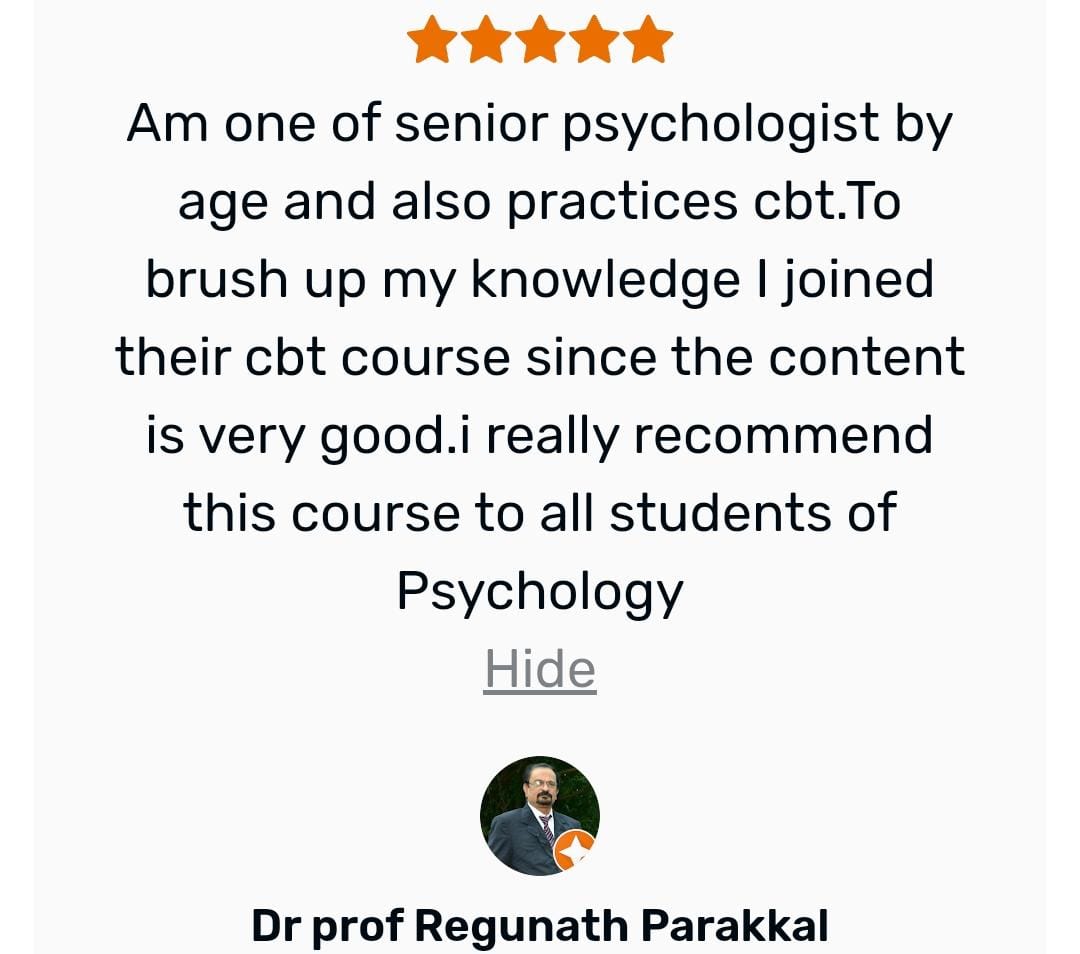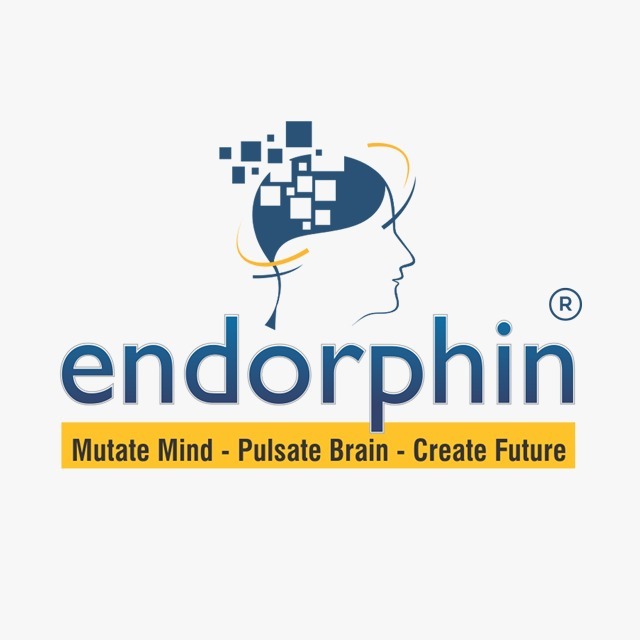Cognitive Behavioural Therapy
We are your go-to destination for Cognitive-Behavior Therapy (CBT) certifications. Our program is designed to equip mental health professionals with the necessary skills and knowledge to deliver evidence-based interventions.
- Internationally Acclaimed Systems
- State Govt University Certification
Check your fitment to become a CBT Therapist
Why Choose Endorphin Corporation for CBT Certifications?
At Endorphin Corporation, we prioritize your professional growth. Our CBT certification program is recognized by industry professionals and offers exciting career opportunities. By completing our program, you can enhance your credibility and open doors for advancement.
CBT has been found to be effective in Behavioral modification relating to;
- Anxiety
- Depression
- Bipolar Disorder
- OCD
- PTSD
- Social Anxiety
- Eating Disorders
- Sleep Difficulties
Our expert faculty, comprised of experienced clinicians and researchers, will guide you through the core principles of CBT, its history, and the underlying cognitive and behavioral models. Through engaging lectures, interactive discussions, and practical exercises, you'll develop the skills needed to effectively apply CBT techniques.
During the certification program, you'll learn how to establish strong relationships with clients and tailor treatment plans to meet their specific needs. We emphasize thorough assessments, goal-setting, and implementing CBT interventions. By integrating CBT into your practice, you'll help clients identify and change unhelpful patterns of thinking and behavior, leading to positive life changes.
Our CBT certification signifies your expertise and commitment to evidence-based care. It boosts your professional credibility and sets you apart from your peers. With our rigorous training and comprehensive curriculum, you'll become a confident CBT practitioner, making a lasting impact on your clients' lives.
- Duration: 10 Weeks
- Instruction Pattern: Endorphin Instruction Design
- Who should Consider: Any Graduate
- Certification Provider: State Govt University
Enrol in our CBT Certification Program at Endorphin Corporation today. Join our community of passionate professionals and make a difference in the lives of those who need it most.
Testimonials



Your CBT Mentor

Aditi Saxena
CBT Therapist
Know More
Aditi is a Bonafied Certified as RCI registered Practising Clinical Psychologist with relevant teaching and research experience from quality institutions. She is a trained CBT Therapist and Trainer from Beck Institute of CBT (Philadelphia). She has a Hands on Experience of Corporate Training & Recruitment.
At Beck’s Institute Of CBT ,Certified CBT Therapist, Supervisor and Trainer she would Impart Counseling and Therapy to Clients, Administer Various Psychological Tests for diagnosis and conducting Workshops for students and fellow Mental Health Workers for CBT and Emotional Self Awareness.
As a Consultant at Yale University USA, for international research project in Mt. Everest, Nepal- She conducted analysis of tourism perception in Sagarmatha National Park in the resident Sherpa community about 12,000 ft. she developed research methodology for multi stakeholder perception analysis

Rajeshwari
CBT Psychologist and CBT Practioner
Know More
Rajeshwari is a counseling CBT psychologist and CBT Practioner with 2.5 years of experience.
She has worked for FedEx, during which she designed and delivered multiple learning and wellbeing interventions.
She has completed her Msc. In Organizational Psychiatry and Psychology from King's College London and currently practices under the name of Serenity-Your Wellbeing Studio.
She is a consultant with Visit Health and adopts a solution-focused, trauma informed approach in her sessions. She works with adolescents and adults to address emotional, interpersonal, behavioral, and lifestyle concerns.
